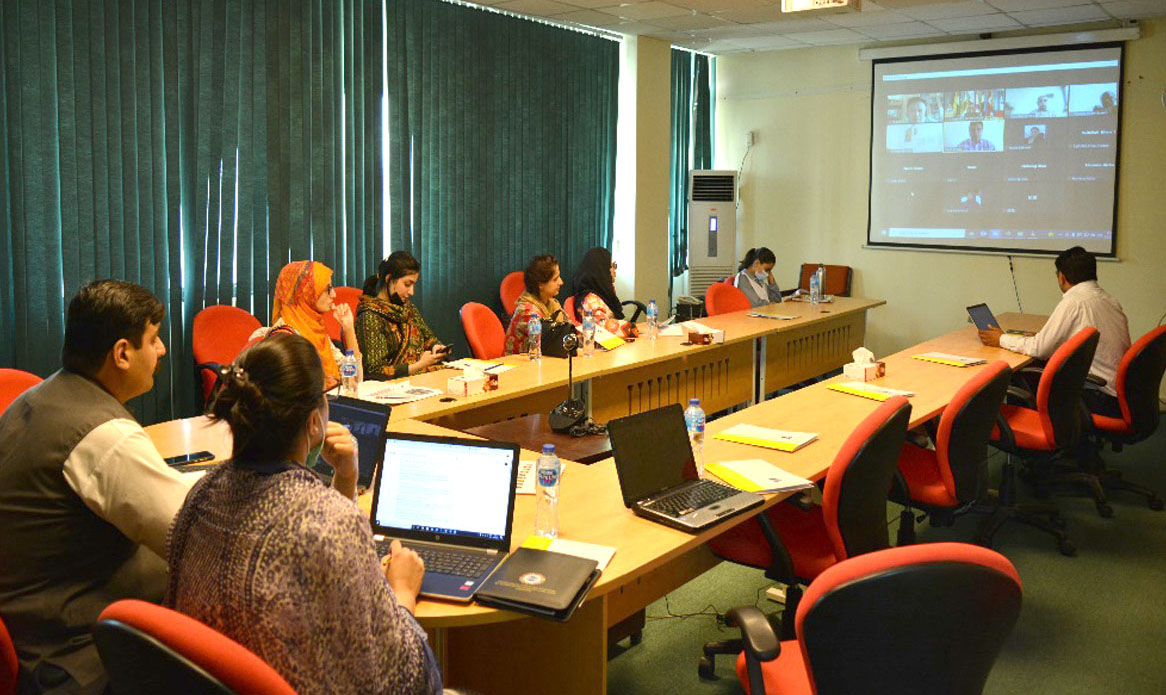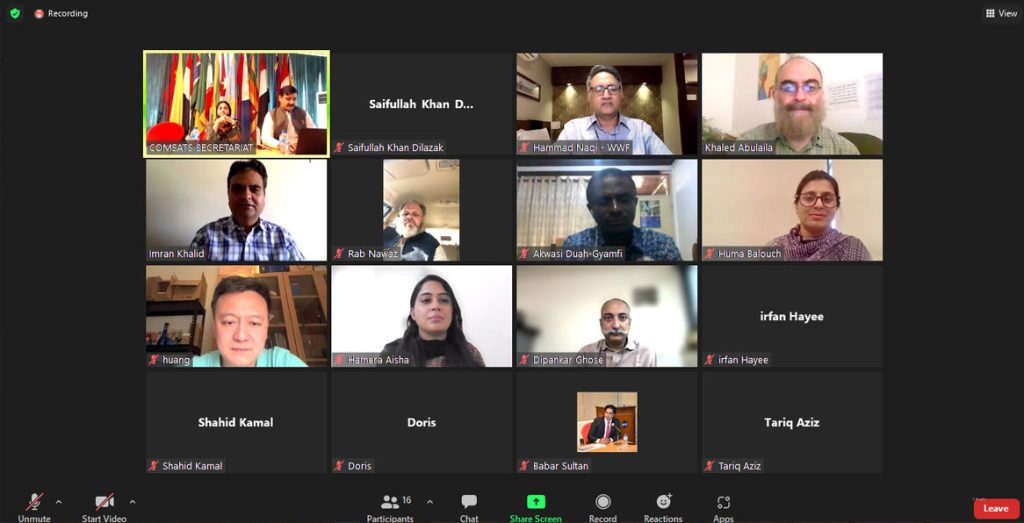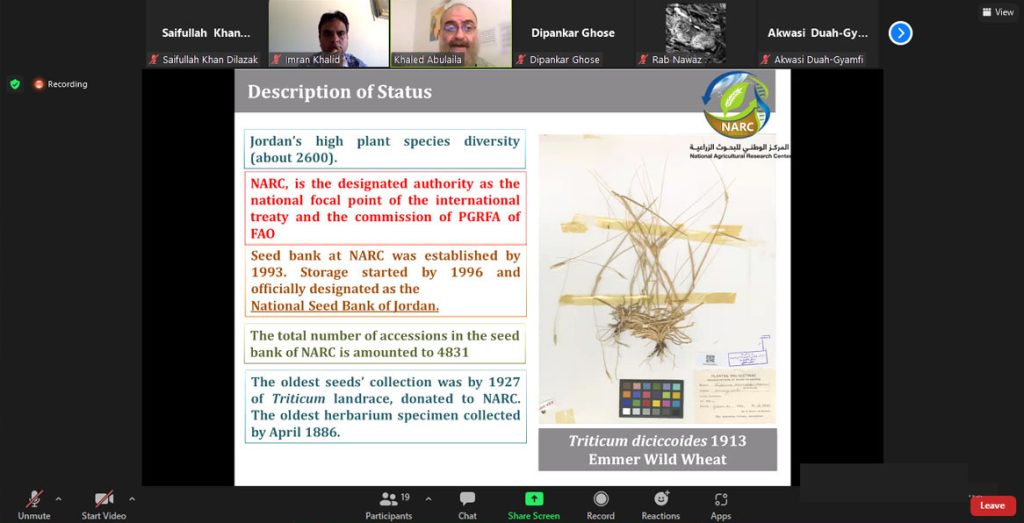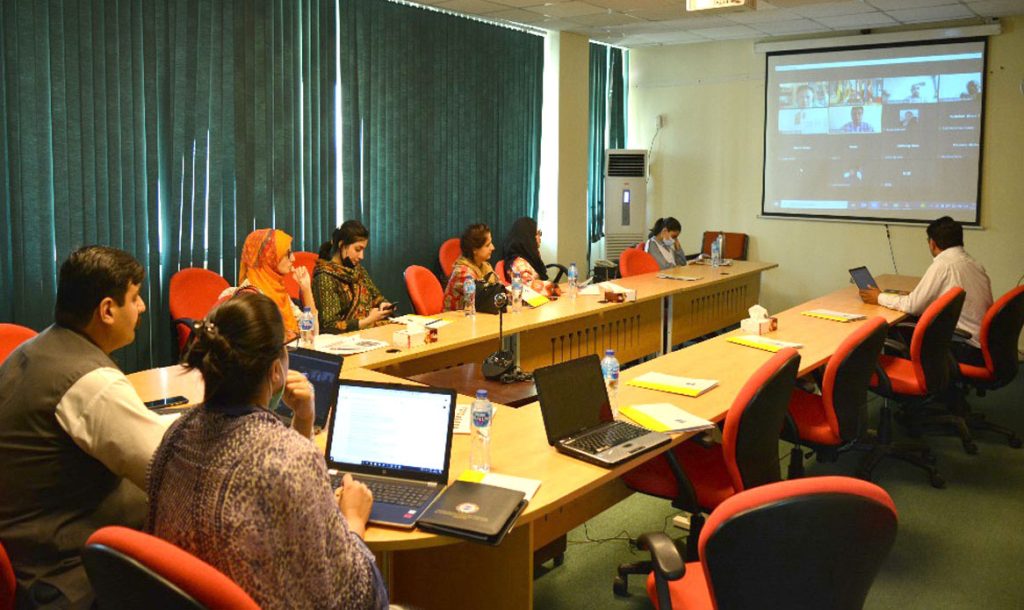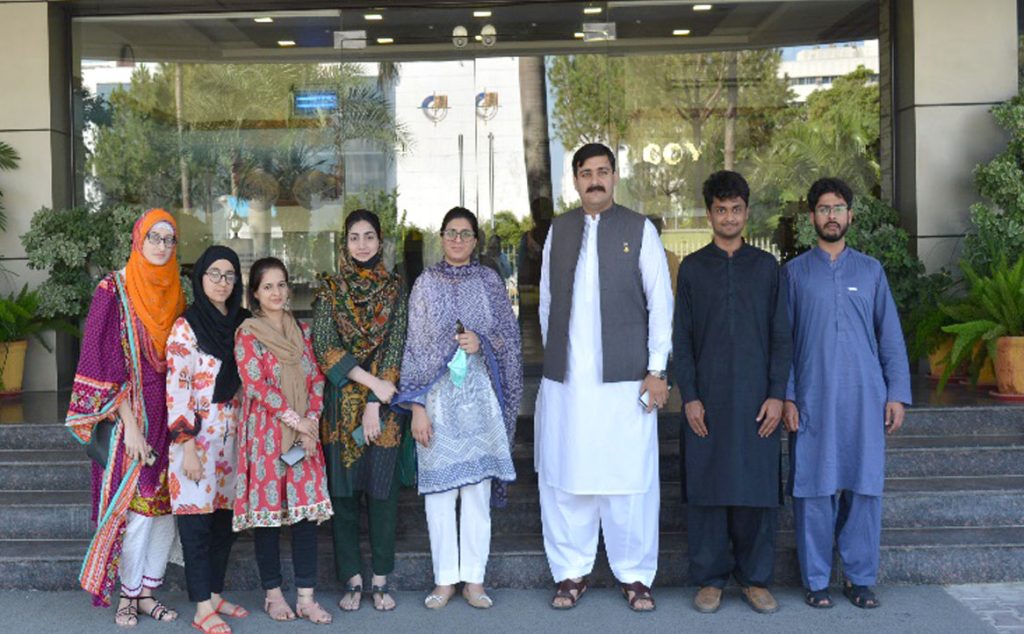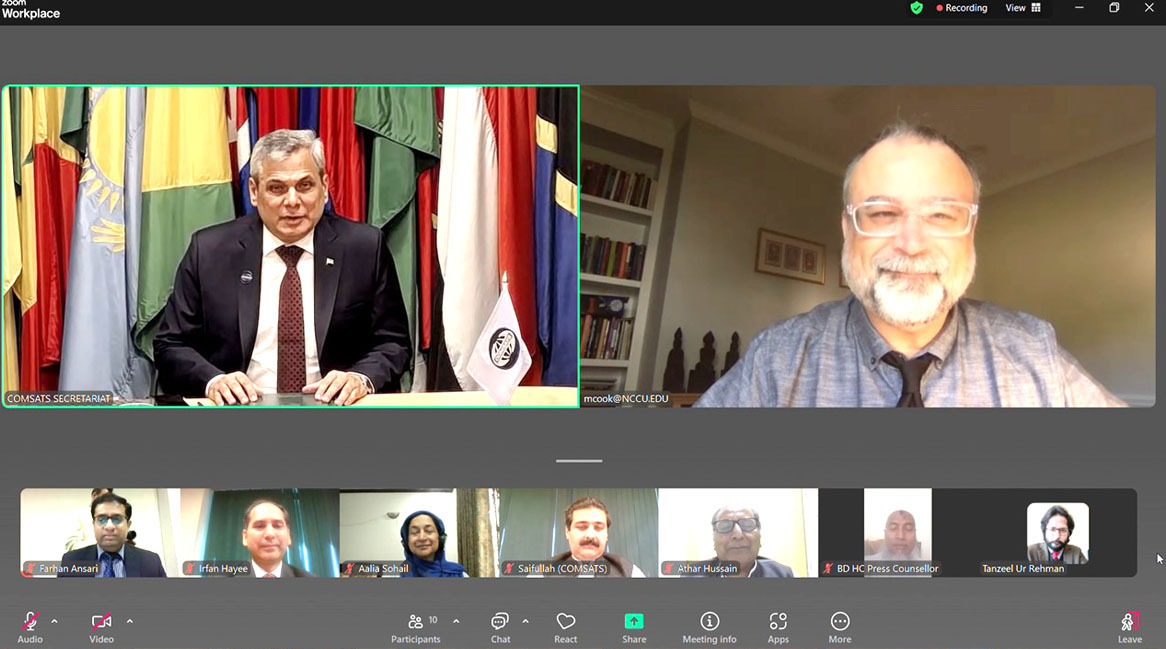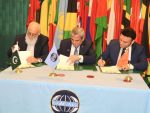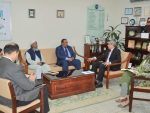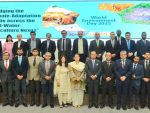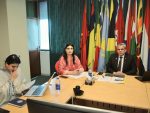COMSATS event on International Day for Biodiversity-2022 explores challenges towards and solutions for biodiversity conservation with expert inputs from China, Pakistan, Ghana, Jordan and WWF.
On Tuesday, May 24, 2022, COMSATS hosted a webinar to mark United Nations International Day for Biological Diversity 2022 titled “South Views on Post-2020 Global Biodiversity Framework”. The event was organized by COMSATS Centre for Climate and Sustainability (CCCS) in collaboration with the World Wide Fund for Nature (WWF). The theme of the event – “Building a shared future for all” – was chosen in light of the post-2020 Global Biodiversity Framework, which will be established at the UN Convention on Biodiversity’s 15th Conference of Parties (COP15) in June 2022.
More than 50 academics, students, and specialists from China, The Gambia, Ghana, India, Jamaica, Jordan, Kazakhstan, Nigeria, Pakistan, and Turkey participated in the webinar both physically and virtually. The goal of the webinar was to emphasize the importance of biodiversity and conservation, as well as to develop understanding and raise awareness of biodiversity concerns in developing countries. Experts from China, Ghana, India, Jordan, and Pakistan served as panelists in this webinar, discussing the concerns, sharing their experiences, and suggesting sustainable strategies to conserve biodiversity.
Ambassador Shahid Kamal (Founder of CCCS) welcomed participants, expressed gratitude to the experts for their participation, and discussed the importance of sustainable development and biodiversity in the context of climate change in his opening comments.
Mr. Naeem Ashraf Raja, Director Biodiversity, Ministry of Climate Change, Pakistan, was keynote speaker of the webinar. He delineated on challenges and opportunities with regard to Convention on Biodiversity. He shared the road map for the upcoming COP 15 in China, in which parties will deliberate on ways to achieving targets by 2030.
Prof. Zhiyoun Huang, Coordinator of the COMSATS Joint Center for Industrial Biotechnology (CCIB), in his presentation, emphasized that understanding on response of Earth’s biosphere to global climate change will remain profoundly limited unless there is a recognition of importance of microbial diversity. This could jeopardize prospects for building a sustainable future. Prof. Huang discussed the central role of microbial diversity in rock and soil chemical process to mitigate climate change climate change and also explained how climate change is influencing microbial diversity.
Ms. Hamera Aisha, an official from WWF- Pakistan, discussed the efforts made for conservation of Indus river dolphin and factor affecting the population of the species. She added that construction of dams and barrages significantly threatened the survival of Indus dolphin. Fishing activities in the downstream of river Indus is major life threat to Indus dolphin. Ms. Aisha emphasized the need of devising a framework methodology for modeling threats to biodiversity at different scales, directing future research, resource allocation, and efficient policies, legal frameworks, and regulations.
Dr. Akwasi Duah-Gyamfi, Head of Biodiversity Conservation and Ecosystem Services Division of the Forestry Research Institute of Ghana, shared views about forest ecosystem and role of biodiversity. He highlighted that invasive species, Illegal farming, agriculture activities, timber industry and urbanization are major threat to the forest biodiversity. Underpinning the theme of the day ‘building a shared future for all’, he added that our food, medicine, and survival depends upon natural resources available through biodiversity. Natural resources are a common wealth that should be consumed wisely to ensure that enough is left for future generations. Dr. Gyamfi suggested that strong policies should be formulated for reversal of biodiversity losses and community engagement approaches could help better achieving the goals of conservation.
Dr. Dipanker Ghose, Director, Species & Habitats, WWF-India, spoke on how environmental degradation and climate change are destroying wildlife and habitat. He considered urbanization and industrialization serious threats of environmental health and integrity. He further informed that during the last half-century, global economic expansion has drastically altered people’s lifestyles, at a massive cost to the environment in the form of ecosystem destruction and global warming. Dr. Ghose discussed some common leopard, farmland tigers, waterfowl, and reptile situations. Humans interfere with animals’ natural habitats as a result of urban growth, resulting in human-animal conflicts that endanger species.
Dr. Khaled Abulaila, Director of Biodiversity and Plant Genetic Resources, National Agriculture Research Center, Jordan, gave a talk on the topic of Conservation of Plant Biodiversity for Food. He explained that the rich genetic pool of crop species helps against extreme conditions and huge yield. Amid growing concerns regarding climate change and food security, intra and inter crop diversity are important to sustain. He appreciated NARC’s commitment to seed conservation in Jordan, as well as herbarium management.
The technical talks of the webinar were followed by panel discussion moderated by Dr. Imran Khalid, Director, Governance and Policy, WWF-Pakistan. In the panel discussion, experts were engaged in the discussion on how the climate and biodiversity crises are intertwined, as well as the critical role that South-South cooperation can play in restoring ecosystems and biodiversity, as well as mitigating and adapting to climate change.
Concluding the event, Mr. Hammad Naqi Khan, Director General, WWF-Pakistan, thanked all attendees, specialists and organizers, and underscored the value of biodiversity. Mr. Naqi also highlighted activities of WWF-Pakistan in the field of biodiversity protection.

